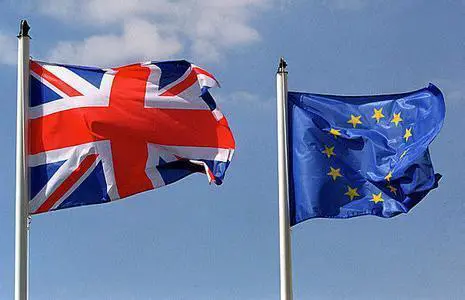According to the People’s Daily, as of 6:00 am, June 24 local time, votes of only 8 among the 328 electorates across Britain remained to be calculated. But the Leave camp won over half of the votes at 16,800,000, 1,200,000 votes more than the Remain camp. The Leave camp won the referendum, and Britain will leave the European Union.
Here is what other countries and foreign officials said about the outcome:
European institutions: Elmar Brok, chairman of the European Parliament Committee on Foreign Affairs said he felt no surprise about the Brexit result. “We must finally build a Europe that delivers what the citizens of Europe want.” It has to be clarified that Britain did exit the EU, but the EU will not collapse. British withdrawal will impair the EU, and will be a catastrophe to British as well. Manfred Weber, leader of the largest group in the European Parliament, said "Exit negotiations should be concluded within 2 years at max. There cannot be any special treatment. Leave means leave."
**Germany: **German Vice-Chancellor Sigmar Gabriel commented on Twitter, "Damn! A bad day for Europe."
**Japan: **Japanese Foreign Minister Taro Aso noted that Japan is paying close attention to the stressed foreign exchange market, and promised to “respond firmly when necessary”. Bank of Japan Governor Haruhiko Kuroda said that that the BOJ stands ready to provide ample liquidity to financial markets, including by using existing swap arrangements with other central banks, and that G7 members could use foreign exchange swaps if necessary.
**South Korea: **South Korea's officials said that they would hold an emergency meeting to discuss the British withdrawal from the European Union. In addition, foreign media cited from traders that South Korea’s foreign exchange authorities seemed to be selling off U.S. dollars to restrain won to decline.
Netherlands: Geert Wilders, Dutch Freedom Party leader, “now it is our turn. Time for a Dutch referendum!”
**Australia: **Australian Prime Minister Malcolm Turnbull, “it will take some years for the United Kingdom to leave the European Union, to negotiate an exit. Australia will maintain a close relationship with the UK, and the negotiation of free-trade agreements with the EU will keep advancing. But there will be a degree of uncertainty for some time."
Analysis from several institutions and insiders is as follows:
Morgan Stanley expects that the stock market of the EU will tumble 15-20 percent after the Brexit vote and the Sterling will go to 1.25-1.30 against the dollar.
Analysts from Australia and New Zealand Banking Group (ANZ) see potential now for the People’s Bank of China (PBOC) to cut reserve requirement ratio (RRR) after Brexit vote.
Liu Dongliang, senior analyst at China Merchants Bank, indicates that if the “leave” camp wins, on-shore RMB will weaken in the short run and may even face the risk of dropping to 6.65-6.68. The increasing risk-averse sentiment in the overseas market will push up the U.S. dollar, yen and the US bonds; the depreciation of the Sterling and euro as well as the surge of the US dollar index will put the CFETS (China Foreign Exchange Trade System) RMB Index and the central parity rate of RMB under the pressure of passive devaluation. It is expected that the PBOC will not allow sharp fluctuation of RMB, and it may stabilize RMB through central parity rate and intervention.
UBS points out that gold might climb to 1,350 U.S. dollars per ounce in the short run. Gold usually shows sound performance against headwind.
Zhang Jiantai, analyst for foreign exchange strategy of Asian currencies with Mizuho Bank, claims that if the UK votes to leave the EU, the exchange rate of U.S. dollar against off-shore RMB might climb above 6.65 today. If the rate climbs above 6.65 and reaches 6.7618 within 2016, and the spread between offshore RMB and onshore RMB exceeds 500 base points, China’s PBOC might intervene.
HSBC expects that the exchange rate of Sterling against the U.S. dollar might drop to 1.25 in the third quarter of this year and drop to 1.20 by the year end.
(APD/XH FINANCE)
 简体中文
简体中文

